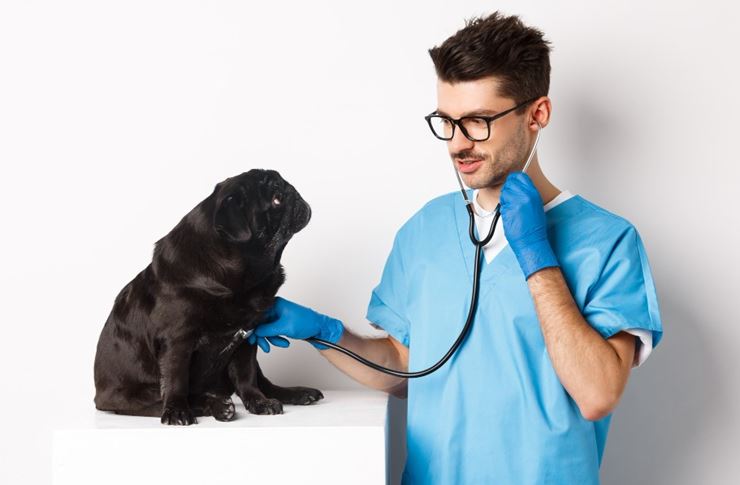
Signs Your Pet Needs Urgent Medical Care: A Quick Guide for Pet Owners
Pets are cherished family members, bringing joy and companionship into our lives. Ensuring their well-being is a significant responsibility, requiring awareness of their health and behavior. Although pets cannot verbally communicate when they’re unwell, they do exhibit signs that can alert us to potential problems. Recognizing these indicators is crucial for timely intervention, preventing minor health issues from developing into serious concerns. In this blog post, we’ll share with you the signs that may necessitate urgent veterinary attention, empowering you to keep your beloved animal companion safe and healthy.
Sudden Changes in Behavior
Pets, much like humans, are creatures of habit. If your normally energetic dog suddenly becomes lethargic, it may signify a deeper issue. Sudden aggression, excessive restlessness, or disorientation are also red flags. These behavioral changes can indicate illness or pain, requiring a professional evaluation to rule out serious conditions.
Difficulty Breathing
Any sign of breathing trouble—rapid breathing, wheezing, or choking—requires urgent care. Respiratory distress is critical and can be caused by obstructions, allergic reactions, or heart issues. Rapid intervention by a vet can be life-saving, as prolonged breathing difficulties may lead to severe consequences.

Vomiting or Diarrhea
Occasional vomiting and diarrhea are not uncommon in pets. However, persistent occurrences, especially when combined with blood or unusual colors, can indicate poisoning, infection, or gastrointestinal complications. If your pet shows these signs continually for more than 24 hours, immediately contact your vet or visit a veterinary clinic near you, like 1st Pet Veterinary Centers, to avoid dehydration and other serious health issues.
Changes in Appetite and Thirst
A sudden lack of interest in food or water or an increase in consumption can signal problems. Rapid weight loss or gain is a cause for concern and often suggests underlying health problems like diabetes, kidney disease, or thyroid imbalance. A veterinarian can conduct thorough testing to determine the cause and prescribe the appropriate treatment.
Difficulty Urinating or Defecating
If your pet strains to urinate or defecate or you notice unusual discharges, it's crucial to seek help. These symptoms might indicate urinary blockages, infections, or constipation. Prompt veterinary care is necessary to prevent more severe kidney or bladder issues, which can become life-threatening if left untreated.
Visible Pain or Distress
Pets cannot verbalize their pain, so pay attention to cues such as limping, yelping, or excessive licking at one spot. If your pet exhibits any of these signs, an immediate trip to the vet is essential. Identifying the source of pain early can prevent further injury or the spread of infection.
Swelling or Abnormal Lumps
Any lumps or swellings that appear suddenly or change rapidly in size or shape should be examined. These could be cysts, abscesses, or tumors—some of which may be cancerous. Early detection through a vet's assessment provides the best chance for successful treatment.
Seizures or Collapse
Seizures or sudden collapses are critical conditions that demand urgent medical care. These symptoms can be caused by neurological disorders, toxins, or severe infections. A prompt and thorough veterinary evaluation is important to stabilizing your pet and preventing further incidents.

Persistent Coughing or Sneezing
While occasional coughing or sneezing is normal, consistent occurrences paired with other symptoms like nasal discharge or fever require a vet's attention. These could be signs of respiratory infections, heartworms, or allergies that need immediate intervention.
Injuries or Bleeding
Visible injuries, bleeding, or deep cuts need fast attention. While minor scrapes might heal on their own, deeper wounds or those in sensitive areas should be addressed by a professional to prevent infection and ensure proper healing.
Conclusion
Being attentive to your pet's health and behavior is an essential part of being a responsible pet owner. While many issues can be mild or temporary, recognizing the signs that require urgent veterinary care can make a significant difference in the outcome for your beloved animal. Trust your instincts; if something seems off, it’s always wise to contact your vet for guidance. Remember that timely intervention is key to ensuring your pet remains healthy, happy, and by your side for as long as possible. By staying observant and proactive, you can provide your furry friend with the care they deserve, reinforcing the special bond you share.










